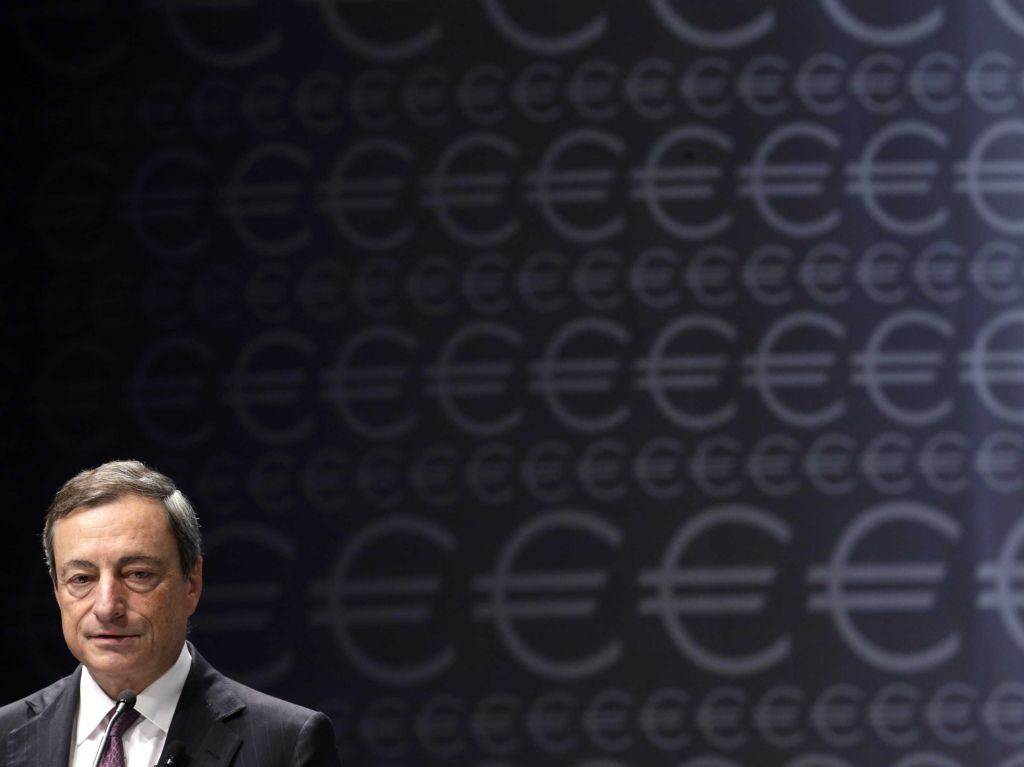by Matthias Hoppe, Senior Vice President, Portfolio Manager, Franklin Templeton Multi-Asset Solutions
Our view is more nuanced, and we think some of the reaction to Draghi’s comments may have been premature.
In particular, although the ECB may reduce the pace of its bond buying when it reviews the practice at the end of 2017, we do not expect an imminent change in interest rates, nor a formal “taper”—which implies a defined end point for the €60 billion per month bond-purchasing programme.
Draghi’s comments, delivered on 27 June during an introductory speech at the ECB Forum on Central Banking in Sintra, Portugal, appeared to paint an optimistic view of the eurozone’s economy.
Markets took his upbeat assessment literally and raised speculation that the ECB may be moving towards tapering, or scheduling an exit from its asset-purchase programme, by early 2018.
In the four days immediately after the speech, the euro appreciated more than 2% versus the US dollar. Eurozone bond yields moved up sharply, with French government bonds leading the correction, rising the most in almost seven months. In Germany, the two-year government bond yield climbed while the 10-year bond yield surged even more, resulting in a steeper yield curve.
In our view, the market’s reaction to Draghi’s comments may have overplayed the ECB president’s optimism.
While we recognise that recent economic data have been mostly positive and political risks have dissipated after the French and Dutch elections, we think recent inflation prints have been disappointing in both the eurozone and the United States.
Furthermore, the market continued to dampen down inflation expectations, including by lowering medium-term inflation breakeven rates in recent weeks.
Thus we think any action the ECB takes will be gradual and cautious. And in fact, reading through the text of Draghi’s speech, we think he sounded a lot less upbeat on inflation than some commentators have suggested.
Draghi noted that the transmission mechanism of strengthening demand to rising inflation has been more restrained than in past cycles. Three reasons for this were offered by Draghi: external shocks to prices, the size of the output gap and its impact on inflation, and the extent to which current inflation feeds into price and wage-setting.
According to Draghi, while the threat of deflation may have diminished, oil and commodity prices haven’t fully recovered from the collapse in 2014 and 2015 and are still having a negative effect on inflation. There continues to be a lack of a clear upward price trend.
The second thing weighing on inflation is the unclear connection between the size of the output gap (the amount by which the actual output of an economy falls short of its potential output) and its impact on inflation. Increased labour force participation on one hand, and companies’ absorption of input costs through lower margins on the other hand, could be part of the reason.
Finally, a persistent period of low inflation is feeding into the price- and wage-setting process in a more tenacious way, according to Draghi. He cites Italy as example of what he calls “backward-looking indexation of wages,” which now covers around one-third of private sector employees there.
Against this background, Draghi insisted in his speech that the ECB “needs to be persistent” and needs to ensure that overall financing conditions continue to support the reflationary process until conditions are “more durable and self-sustaining.” This message was consistent with the press briefing given by Draghi after the June meeting of the ECB’s governing council.
Thus we think the market appears to have over-reacted. While we’d expect the euro should strengthen when interest-rate differentials start to narrow between US Treasuries and German Bunds, the recent move seems to us to have been too fast.
The comments, opinions and analyses presented herein are for informational purposes only and should not be considered individual investment advice or recommendations to invest in any security or to adopt any investment strategy. Because market and economic conditions are subject to rapid change, comments, opinions and analyses are rendered as of the date of the posting and may change without notice. The material is not intended as a complete analysis of every material fact regarding any country, region, market, industry, investment or strategy.
Data from third-party sources may have been used in the preparation of this material and Franklin Templeton Investments (“FTI”) has not independently verified, validated or audited such data. FTI accepts no liability whatsoever for any loss arising from use of this information, and reliance upon the comments, opinions and analyses in the material is at the sole discretion of the user. Products, services and information may not be available in all jurisdictions and are offered by FTI affiliates and/or their distributors as local laws and regulations permit. Please consult your own professional adviser for further information on availability of products and services in your jurisdiction.
To get insights from Franklin Templeton delivered to your inbox, subscribe to the Beyond Bulls & Bears blog.
For timely investing tidbits, follow us on Twitter @FTI_Global and on LinkedIn.
What Are the Risks?
All investments involve risks, including possible loss of principal. The value of investments can go down as well as up, and investors may not get back the full amount invested. Stock prices fluctuate, sometimes rapidly and dramatically, due to factors affecting individual companies, particular industries or sectors, or general market conditions. Bond prices generally move in the opposite direction of interest rates. Thus, as prices of bonds in an investment portfolio adjust to a rise in interest rates, the value of the portfolio may decline. Special risks are associated with foreign investing, including currency fluctuations, economic instability and political developments. Any further exits from the EU, or a belief that such exits will occur, may cause additional market disruption globally and introduce new legal and regulatory uncertainties.
Copyright © Franklin Templeton Investments














